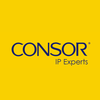In today's fast-paced digital landscape, the valuation of software and technology assets has become increasingly critical for businesses and investors alike. Whether it's a startup seeking funding, a company contemplating an acquisition, or an investor evaluating potential opportunities, understanding the value of software and technology assets is essential for making informed decisions. In this blog post, we delve into the intricacies of software and technology valuation, exploring key concepts, methodologies, and best practices.
Introduction
Software and technology assets represent a significant portion of the modern economy. From innovative software solutions to cutting-edge technologies, these assets drive efficiency, productivity, and competitive advantage across industries. However, assessing their value can be challenging due to their intangible nature, rapid evolution, and diverse range of factors influencing their worth.
The Importance of Software and Technology Valuation
The valuation of software and technology assets serves multiple purposes, including:
-
Strategic Decision-Making: Understanding the value of software and technology assets helps organizations make strategic decisions regarding investments, partnerships, and resource allocation.
-
Financial Reporting: Accurately valuing software and technology assets is crucial for financial reporting purposes, ensuring transparency and compliance with accounting standards.
-
Mergers and Acquisitions: In mergers and acquisitions (M&A) transactions, the valuation of software and technology assets plays a pivotal role in determining the purchase price and negotiating favorable terms.
-
Investment Analysis: Investors rely on software and technology valuation to assess the potential returns and risks associated with investment opportunities in the tech sector.
Key Concepts in Software and Technology Valuation
Several key concepts underpin the valuation of software and technology assets:
-
Intangible Assets: Software and technology assets are often classified as intangible assets due to their lack of physical form. Valuing intangible assets requires specialized methodologies tailored to their unique characteristics.
-
Market Dynamics: The value of software and technology assets is influenced by market dynamics, including demand, competition, technological trends, and regulatory factors.
-
Risk Assessment: Assessing the risks associated with software and technology assets is essential for determining their value. Factors such as technology obsolescence, intellectual property protection, and market volatility can impact valuation outcomes.
-
Revenue Generation Models: Understanding the revenue generation models underlying software and technology assets is crucial for estimating future cash flows and determining their present value.
Methodologies for Software and Technology Valuation
Several methodologies are commonly used for valuing software and technology assets:
-
Cost Approach: The cost approach involves estimating the cost of developing or acquiring a similar software or technology asset. While straightforward, this approach may not capture the asset's full economic value, particularly if it has unique features or market potential.
-
Market Approach: The market approach relies on comparing the target asset to similar assets that have been sold or valued recently. This approach leverages market data to derive a valuation based on comparable transactions.
-
Income Approach: The income approach focuses on estimating the future income or cash flows generated by the software or technology asset. This can be done using techniques such as discounted cash flow (DCF) analysis, which discounts future cash flows to their present value based on risk-adjusted discount rates.
-
Option Pricing Models: Option pricing models, such as the Black-Scholes model, are sometimes used to value software and technology assets with embedded options, such as patents or licenses.
Best Practices for Software and Technology Valuation
To ensure accurate and reliable valuation outcomes, practitioners should adhere to best practices, including:
-
Comprehensive Due Diligence: Conducting thorough due diligence is essential for gathering relevant information and assessing the unique characteristics of the software or technology asset.
-
Engaging Qualified Professionals: Software and technology Valuation requires specialized expertise in areas such as finance, technology, and intellectual property. Engaging qualified professionals with relevant experience enhances the credibility and accuracy of the valuation process.
-
Considering Multiple Perspectives: Valuation outcomes may vary depending on the perspective of stakeholders, such as buyers, sellers, and investors. Considering multiple perspectives and scenarios can provide a more comprehensive understanding of the asset's value.
-
Updating Valuations Regularly: Software and technology assets are subject to rapid change and evolution. Regularly updating valuations ensures that they remain relevant and reflective of current market conditions.
Conclusion
The valuation of software and technology assets is a multifaceted process that requires a deep understanding of both financial principles and technological dynamics. By employing sound methodologies, conducting thorough due diligence, and adhering to best practices, stakeholders can unlock the value of software and technology assets and make informed decisions that drive success in the digital age.
In summary, software and technology valuation is not just about assigning a number to an asset; it's about understanding the intricate interplay of factors that contribute to its value and leveraging that understanding to achieve strategic objectives. As technology continues to reshape industries and redefine business models, the importance of accurate and insightful valuation practices will only grow in significance.

No comments yet